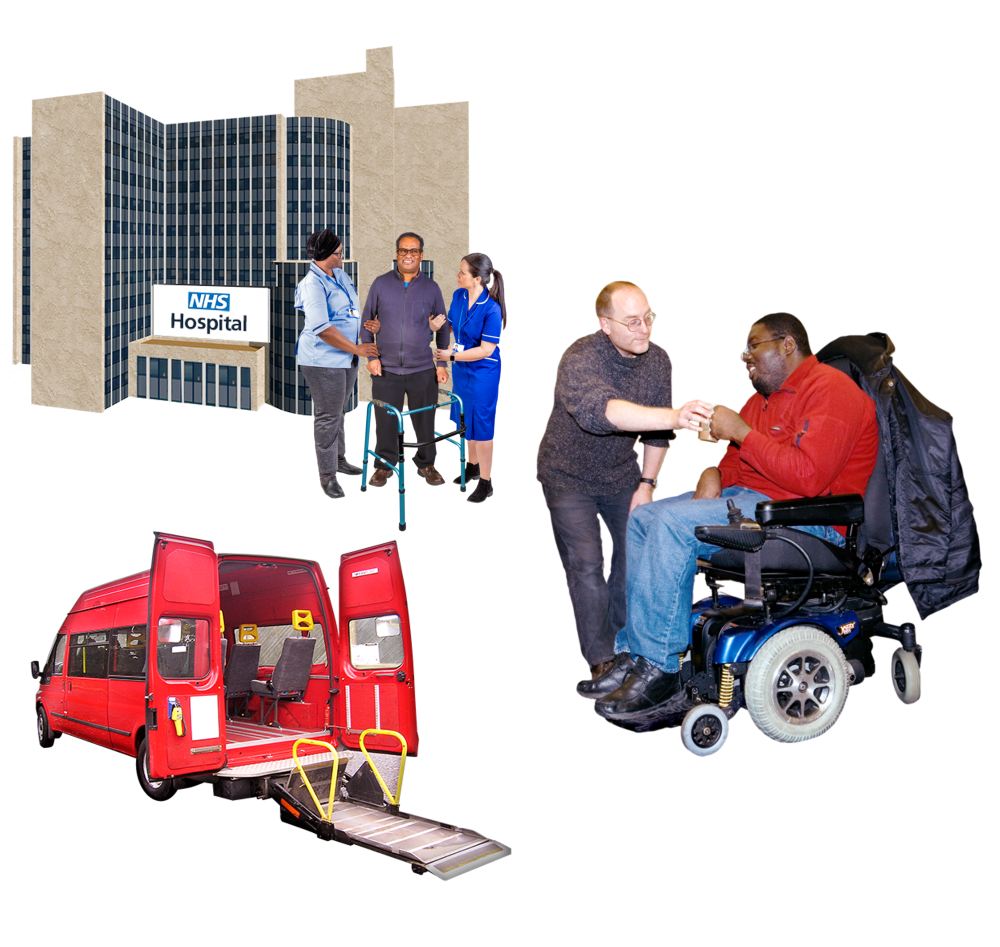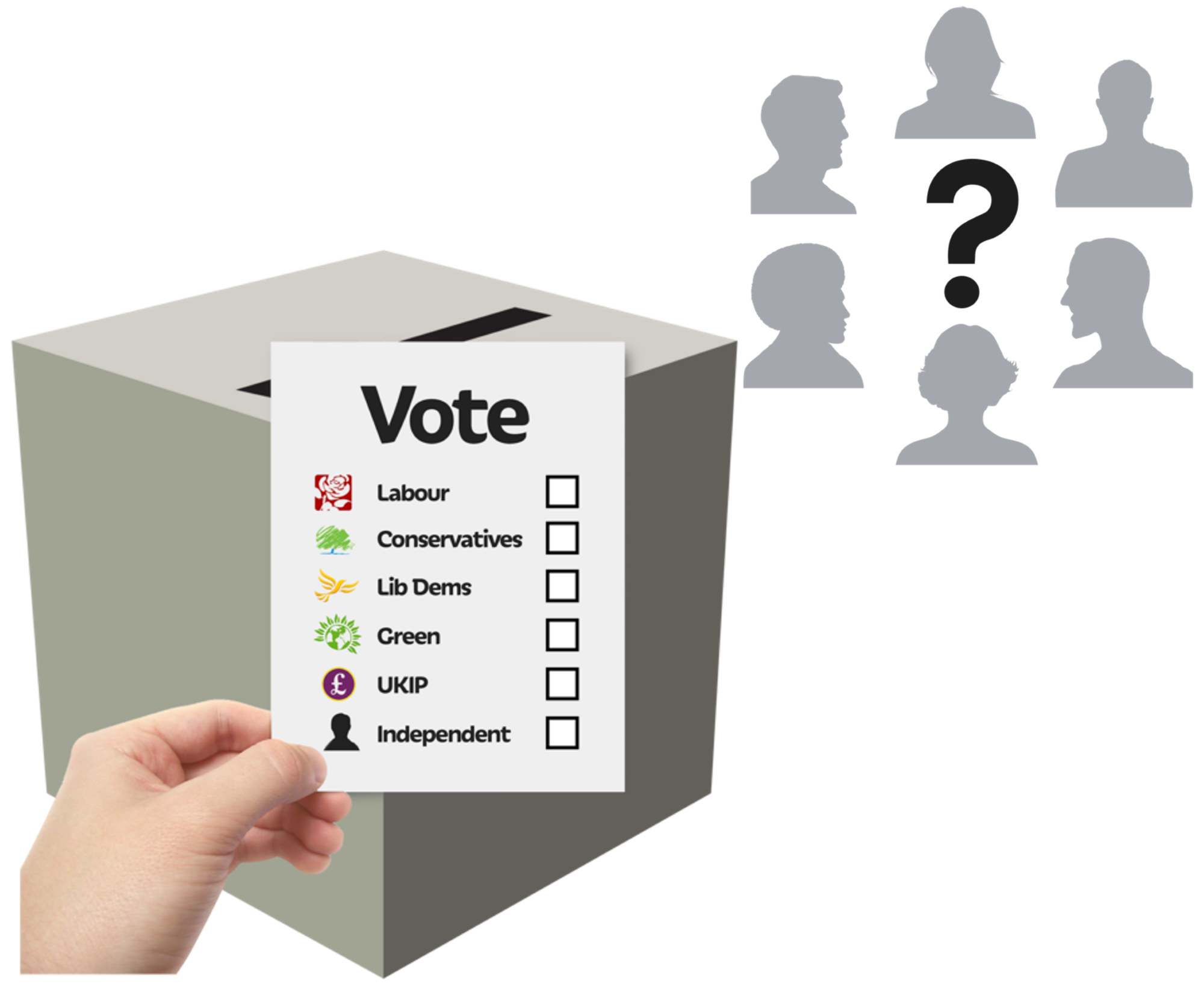Portage is a home visiting educational
service
 A service gives people what they need, like healthcare services that help people when they are ill, and support services that give people support.
for preschool children with special educational needs and disabilities and their families.
A service gives people what they need, like healthcare services that help people when they are ill, and support services that give people support.
for preschool children with special educational needs and disabilities and their families.
The Portage model involves and recognises parents as the first educators of their children. Portage Home Visitors work with parents to help encourage their child’s development by identifying what their child can do and build important skills for future learning.
Mencap is calling on the next government to commit to ensuring all children with a
learning disability
 A learning disability is to do with the way someone's brain works. It makes it harder for someone to learn, understand or do things.
get the right support at the right time so they can develop to reach their full potential.
A learning disability is to do with the way someone's brain works. It makes it harder for someone to learn, understand or do things.
get the right support at the right time so they can develop to reach their full potential.
81% of parents who have a young child with a learning disability said that Portage services are invaluable to them (1). They told Mencap that Portage:
- Prepares children for nursery, pre-school or school
- Focuses positively on what a child can achieve
- Provides parents with practical and emotional support
- Teaches parents and siblings a wide variety of techniques to enable them to interact effectively with their child, ranging from sensory play sessions to learning Makaton
- Helps to connect parents with other families who have a child with a learning disability
- Prevents families from reaching crisis point
However, Freedom of Information requests sent to all local authorities in England and Wales revealed a worrying trend in local authorities cutting their spending on Portage. Last year, 37% of councils reduced their expenditure on Portage and 21% of councils propose a reduction in expenditure on Portage this year. What’s more, almost 1 in 5 local authorities do not provide any Portage services whatsoever (2).
The impact of these
cuts
 Cuts are when there is less money to pay for things like clubs and support.
and patchy national provision is being felt directly by families. Despite Portage services being invaluable to families, access to them is a postcode lottery. Indeed, 19% of parents reported having no Portage available whatsoever in their local area, with a further 26% reporting cuts to their local Portage.
Cuts are when there is less money to pay for things like clubs and support.
and patchy national provision is being felt directly by families. Despite Portage services being invaluable to families, access to them is a postcode lottery. Indeed, 19% of parents reported having no Portage available whatsoever in their local area, with a further 26% reporting cuts to their local Portage.
Helen and Jon live in North Tyneside with their 5 year old son Noah who has profound and multiple learning disabilities. Early intervention from the local Portage service has been invaluable to them. Helen says:
When Noah was born, we weren’t prepared for how often we’d be told about what he wouldn’t be able to do. It was very upsetting. It wasn’t until we met our Portage worker that we first experienced people telling us what was possible for Noah.
She would come to our home on a weekly basis. It was our Portage worker who first noticed Noah was trying to communicate with us. I remember the first time we realised just how Noah showed a smile and what signs he made when he wanted a kiss.
Portage helped to give Noah the best possible start and it also recognised how important we – the parents – were in all of this. I am shocked that Portage isn’t offered everywhere. If it wasn’t for the incredible support we received right from the start, I’m not sure our family would have survived.
Yasmin and Lee, from Bristol, have a two-year-old son called Albie who has Down’s syndrome. Yasmin is worried about what funding cuts to their Portage service will mean for Albie’s future:
The waiting list for one-to-one Portage is so long. After going on the waiting list two years ago, we have finally reached the top of the list and Albie has had three sessions. We also attend group sessions and Albie really has come along leaps and bounds.
Our Portage service has been threatened with losing its funding. They told me that Albie would only get 12 sessions and if we needed any more, they would have to make the case for why we need it. I don’t know what they will say after 12 sessions and it is really worrying. I have found Portage such a massive help for Albie and I worry that losing it could inhibit his development and his chances to go to mainstream school.
Blogger and campaigner Hayley from Cornwall is mother to seven-year-old Natty who has Down’s syndrome. Portage helped to give Natty a great start in life – she is flourishing in mainstream school and is also fronting national advertising campaigns as a model:
Portage was a life-saver for me in the early days. It wasn’t just the sound advice or loan of fabulously educational toys, or even the linking up of other services, but sometimes the friendly face, telling me over a cuppa that our daughter was doing really well, meant the most. She listened to our concerns about Natty and big sister Mia and has witnessed tears too. But she always scooped us up and helped us along. Portage is an invaluable service that families can’t afford to have cut.
Parents, like Helen, Yasmin and Hayley, have told Mencap that early years support is hugely important to them. Through the charity’s general
election
 An election is when people choose who should be in charge of something. This could be in charge of a group, an area, or the country. People choose by voting. The person with the most votes wins.
campaign, Hear my voice, Mencap is giving these families a platform to call on the next government to commit to ensuring all children with a learning disability get the right support at the right time so they can develop to their full potential.
An election is when people choose who should be in charge of something. This could be in charge of a group, an area, or the country. People choose by voting. The person with the most votes wins.
campaign, Hear my voice, Mencap is giving these families a platform to call on the next government to commit to ensuring all children with a learning disability get the right support at the right time so they can develop to their full potential.
Early intervention services, such as Portage, are very important for children with a learning disability. Jan Tregelles, chief executive of Mencap, explains:
Children with a learning disability often don’t get the same start in life as other children and our research shows that the postcode lottery of early years support is robbing many children of their best chance of developing to reach their full potential.
Parents have told us that Portage not only gives their child the best possible start in life, but it is also a lifeline for them. It celebrates achievement and recognises that both the child and the family need practical and emotional support in the early stages.
The first years of child with a learning disability’s life are crucial – they shape the brain development that is the foundation for future learning, behaviour, and health. If early and effective support is not available for every child with a learning disability and their parents, it can mean that the child can be significantly set back in their development. The fact that these services are being put at risk is appalling.
Every child with a learning disability needs to be empowered and given appropriate help along the way. That’s why we’re calling on the next government to commit to ensuring that all children with a learning disability get the right support at the right time so they can develop to their full potential.
In response to Mencap’s research, the National Portage Association (NPA) – the umbrella
organisation
 An organisation are a group of people who work together.
supporting parents, professionals and Portage services across the country – says:
An organisation are a group of people who work together.
supporting parents, professionals and Portage services across the country – says:
The NPA is very much aware of the inequity of Portage provision across the country and has become increasingly concerned to hear from NPA members that a number of Portage services are facing risks of closure, redundancy
Redundancy is when someone loses their job. This might happen because the place where they work closes, or the place where their work changes, or if there is not enough money to pay for their job. , mergence or restructure. The NPA is committed to supporting all registered Portage services under threat and will continue to support the development of new services in areas currently without Portage.
The NPA welcome the recent survey
A survey is when someone asks you to answer some questions. by Mencap and as a leading charity supporting young children with disabilities and their families for 30 years, the NPA is committed and ready to work with all who share this agenda
An agenda is a list of things to talk about at a meeting. .
-ENDS-
For more information, please contact Lisa Gilbert, PR Officer at Mencap, on 020 7696 6950 or lisa.gilbert@mencap.org.uk.
Notes to editor
* Portage is a home visiting pre-school service for children between 0-5 years with additional support needs and their families. Professionals work with parents to help encourage their child’s development by identifying what their child can do and building important skills for their future learning.
(1) Mencap conducted an online survey of 419 parents who have a child between 0-5 years with a learning disability between 12 January-15 February 2015. The survey found that:
- 81% of parents whose children receive Portage services believe it is valuable
- 26% of parents report cuts to Portage services in their area; a further 44% are unsure about whether cuts are taking place
- 19% of parents reported having no Portage services available in their local area
- 34% of parents believe their child does not receive enough Portage to meet their needs
(2) Mencap sent Freedom of Information requests to all local authorities in England and Wales. 142 local authorities responded. Analysis of these responses revealed that:
- 19% of local authorities in England and Wales have no Portage services
- Between 2012/13 and 1013/14, 37% of councils reduced their expenditure on Portage
- Between 2013/14 and 1014/15, 21% of projected council budgets proposed reduced their expenditure on Portage
About Mencap
There are 1.4 million people with a learning disability in the UK. Mencap works to support people with a learning disability, their families and carers by fighting to change laws, improve services and access to education,
employment
 Employment means having a job.
and
leisure
Employment means having a job.
and
leisure
 Leisure is when you have time to do things you enjoy like playing sports or going to the pub.
facilities. Mencap supports thousands of people with a learning disability to live their lives the way they want.
Leisure is when you have time to do things you enjoy like playing sports or going to the pub.
facilities. Mencap supports thousands of people with a learning disability to live their lives the way they want.
Visit www.mencap.org.uk.
For advice and information about learning disability and Mencap services in your area, contact Mencap Direct on 0808 808 1111 (9am-5pm, Monday-Friday) or email help@mencap.org.uk
About Mencap’s Hear my voice campaign
People with a learning disability – and the millions of family members, carers and support workers connected to them – can make their voices heard on the issues that matter to them at the 2015 General Election.
Hear my voice is a campaign designed to provide a platform for people with a learning disability and their families to make their voices heard. There are a lot of different ways to get involved, from sharing what matters to you, to holding an event to get people with a learning disability registered to vote. Through grassroots campaigning, Hear my voice will ensure the next Government improves the lives of people with a learning disability.
About the National Portage Association
The National Portage Association (NPA) is the umbrella organisation for all Portage services across the UK; providing regional and national support for over 30 years to families and professionals involved in Portage. The NPA aim to improve the learning of young children with disabilities and develop the skills of their parents through quality training and support for Portage Home Visitors and the Early Years workforce.
To learn more about the NPA, Portage training and the support offered visit www.hub.portage.org.uk and www.portage.org.uk.